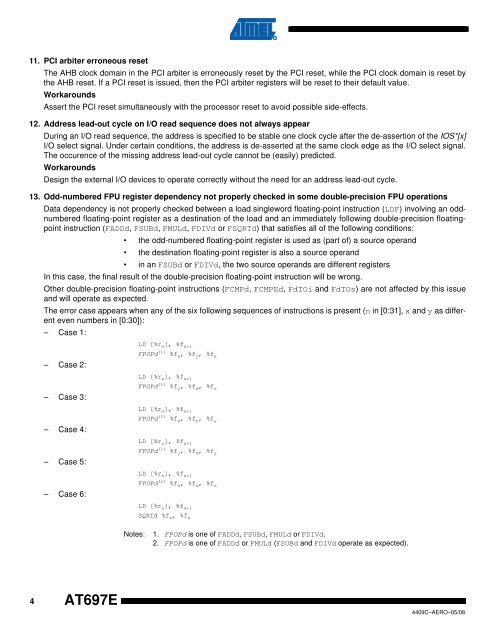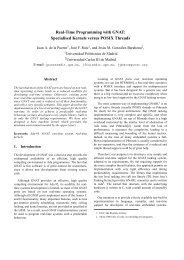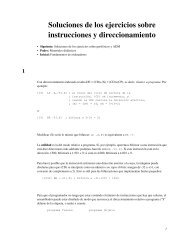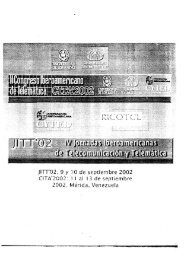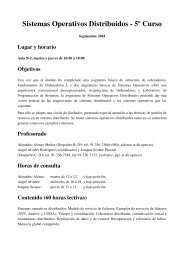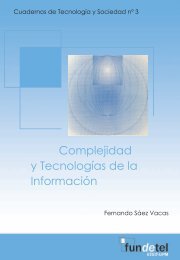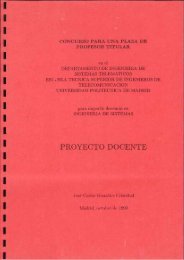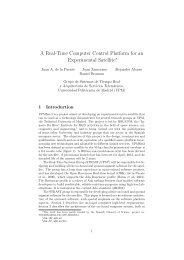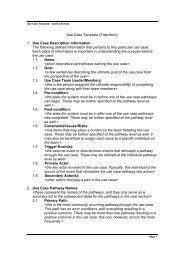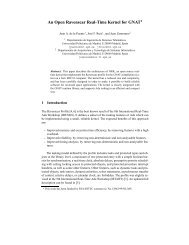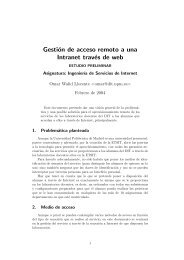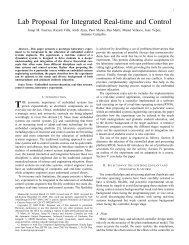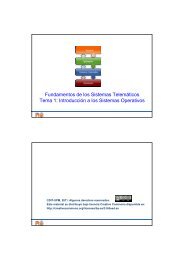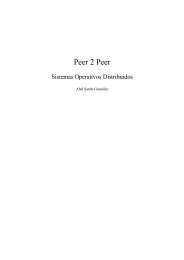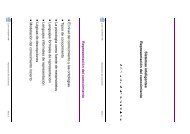Rad-Hard 32-bit SPARC V8 Processor AT697E Errata Sheet - DIT
Rad-Hard 32-bit SPARC V8 Processor AT697E Errata Sheet - DIT
Rad-Hard 32-bit SPARC V8 Processor AT697E Errata Sheet - DIT
Create successful ePaper yourself
Turn your PDF publications into a flip-book with our unique Google optimized e-Paper software.
11. PCI ar<strong>bit</strong>er erroneous reset<br />
The AHB clock domain in the PCI ar<strong>bit</strong>er is erroneously reset by the PCI reset, while the PCI clock domain is reset by<br />
the AHB reset. If a PCI reset is issued, then the PCI ar<strong>bit</strong>er registers will be reset to their default value.<br />
Workarounds<br />
Assert the PCI reset simultaneously with the processor reset to avoid possible side-effects.<br />
12. Address lead-out cycle on I/O read sequence does not always appear<br />
During an I/O read sequence, the address is specified to be stable one clock cycle after the de-assertion of the IOS*[x]<br />
I/O select signal. Under certain conditions, the address is de-asserted at the same clock edge as the I/O select signal.<br />
The occurence of the missing address lead-out cycle cannot be (easily) predicted.<br />
Workarounds<br />
Design the external I/O devices to operate correctly without the need for an address lead-out cycle.<br />
13. Odd-numbered FPU register dependency not properly checked in some double-precision FPU operations<br />
Data dependency is not properly checked between a load singleword floating-point instruction (LDF) involving an oddnumbered<br />
floating-point register as a destination of the load and an immediately following double-precision floatingpoint<br />
instruction (FADDd, FSUBd, FMULd, FDIVd or FSQRTd) that satisfies all of the following conditions:<br />
• the odd-numbered floating-point register is used as (part of) a source operand<br />
• the destination floating-point register is also a source operand<br />
• in an FSUBd or FDIVd, the two source operands are different registers<br />
In this case, the final result of the double-precision floating-point instruction will be wrong.<br />
Other double-precision floating-point instructions (FCMPd, FCMPEd, FdTOi and FdTOs) are not affected by this issue<br />
and will operate as expected.<br />
The error case appears when any of the six following sequences of instructions is present (n in [0:31], x and y as different<br />
even numbers in [0:30]):<br />
– Case 1:<br />
LD [%r n ], %f x+1<br />
– Case 2:<br />
FPOPd (1) %f x , %f y , %f x<br />
LD [%r n ], %f x+1<br />
– Case 3:<br />
FPOPd (1) %f y , %f x , %f x<br />
LD [%r n ], %f x+1<br />
– Case 4:<br />
FPOPd (1) %f x , %f y , %f y<br />
LD [%r n ], %f x+1<br />
– Case 5:<br />
FPOPd (1) %f y , %f x , %f y<br />
LD [%r n ], %f x+1<br />
– Case 6:<br />
FPOPd (2) %f x , %f x , %f x<br />
LD [%r n ], %f x+1<br />
SQRTd %f x , %f x<br />
Notes:<br />
1. FPOPd is one of FADDd, FSUBd, FMULd or FDIVd.<br />
2. FPOPd is one of FADDd or FMULd (FSUBd and FDIVd operate as expected).<br />
4<br />
<strong>AT697E</strong><br />
4409C–AERO–05/08


